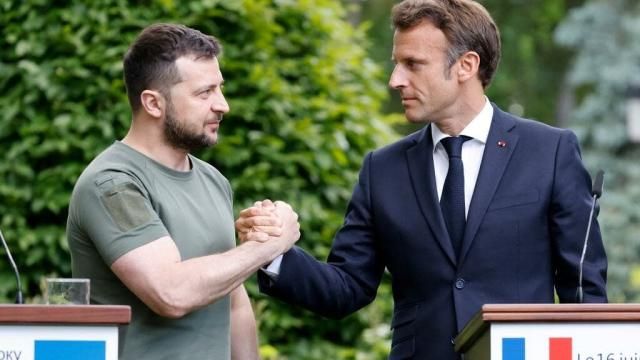After his discussions with European leaders on Thursday, Ukrainian President Volodymyr Zelensky addressed the press and welcomed their support for Ukraine’s application to join the European Union. However, he said that more urgent military assistance will be required to stand against Russia.
According to what he had to say, “the very path of European history has confirmed the validity of the E.U.’s favourable reaction to Ukraine’s ambitions.” According to him, “it will become one of the significant European choices of the first part of the 21st century and boost freedom in Europe.”
At the same time, he made a fresh request for more heavy weaponry, particularly for the combat zones located in eastern Ukraine. According to what he stated, “we anticipate fresh supplies,” particularly sophisticated rocket artillery, heavy weaponry, and missile defence systems. “Every single shipment of aid helps save the lives of countless individuals. And every day that decisions are delayed or postponed is another chance for the Russian military to slaughter Ukrainians.
He said that negotiations would not bring an end to the conflict. According to what he had to say, “we touched on the issue of different nations’ diplomatic attempts to create peace.” “Everyone views the unreadiness of the Russian Federation for actual steps, for serious discussions, as the single hurdle to all of these efforts,”
During his evening speech, Mr. Zelensky congratulated the heads of state of Italy, Romania, France, and Germany for their contributions to the military budget. He also referred to the meeting as a “major step.” Mr. Zelensky also said that Romania, with which Ukraine shares a border, will support Ukraine in the passage of its commodities, particularly the export of grain. Romania and Ukraine share a border.
An advisor to Mr. Zelensky said prior to the visit that much more armament would be required to change the tide of conflicts taking place in the east. According to the adviser, Ukraine will need one thousand howitzers, five hundred tanks, and three hundred rocket artillery systems.
During ministerial discussions held by NATO on Wednesday, the United States made a commitment to provide further military assistance to Ukraine in the amount of more than one billion dollars. This assistance will include the provision of many long-range artillery and missile systems. A total of 108 towed howitzers, 200 armoured personnel carriers, 800 Stinger antiaircraft missiles, and 2,000 Javelin antitank missiles have been delivered by the United States so far.
On the other hand, shipments of weaponry inside Europe have trailed behind. On Thursday, Mr. Macron made a commitment to provide an extra six self-propelled Caesar howitzers, bringing the total number of howitzers to 24. Germany has sent 2,500 antiaircraft missiles, including Stingers, in addition to 14 armoured personnel carriers (APCs). On Thursday, critics in Ukraine, as well as some officials in Mr. Zelensky’s cabinet, expressed a tangible feeling of disappointment about what they believed to be efforts in Europe to pressure Ukraine into entering into discussions with Russia at this moment.
An assistant to the minister of the interior named Viktor Andrusiv took to social media to make the following statement: “Macron, Scholz, and Draghi are giving us candidacy for the E.U., as well as a request to return to the negotiation process with Putin.” On Friday, the European Commission is anticipated to make its formal proposal on Ukraine’s application to become a member of the European Union. According to authorities, the commission is likely to suggest that the country be awarded candidate status when it makes its recommendation.
Despite this, the expected acceptance of Ukraine’s application to join the bloc was widely celebrated as a breakthrough for Ukraine, despite the fact that the process of joining the bloc is difficult and can take as long as a decade. This was the case despite the fact that the war has now cast a shadow over the event. Adopting the European Union’s system of common law and complying with its more than 80,000 pages of rules and regulations are two of the requirements for a country to become a member of the bloc. In addition, the country’s political system, judicial system, and economy must be compatible with the bloc.

